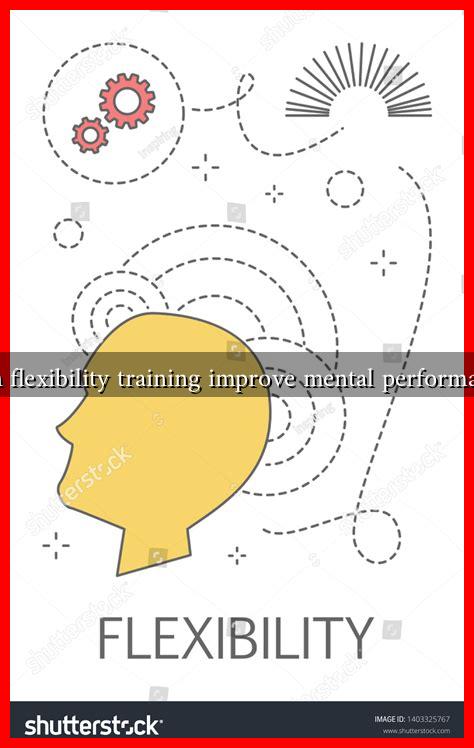-
Table of Contents
Can Flexibility Training Improve Mental Performance?
Flexibility training, often associated with physical fitness, is gaining recognition for its potential benefits beyond the physical realm. As we delve into the relationship between flexibility training and mental performance, we uncover a fascinating interplay that could enhance cognitive function, emotional well-being, and overall mental clarity. This article explores how flexibility training can serve as a powerful tool for improving mental performance.
The Connection Between Body and Mind
Understanding the connection between physical and mental health is crucial. The mind-body relationship suggests that physical activity can influence mental states. Flexibility training, which includes practices like yoga, Pilates, and stretching, can significantly impact mental performance through various mechanisms:
- Increased Blood Flow: Flexibility exercises promote better circulation, ensuring that the brain receives adequate oxygen and nutrients.
- Stress Reduction: Engaging in flexibility training can lower cortisol levels, the hormone associated with stress, leading to improved focus and clarity.
- Enhanced Mindfulness: Many flexibility practices incorporate mindfulness techniques, which can sharpen attention and cognitive function.
Scientific Evidence Supporting Flexibility Training
Numerous studies have explored the cognitive benefits of flexibility training. For instance, a study published in the journal Psychological Science found that participants who engaged in yoga showed significant improvements in working memory and executive function compared to those who did not practice yoga. Another research conducted by the University of Illinois demonstrated that regular stretching and flexibility exercises could enhance cognitive flexibility, allowing individuals to adapt to new information more effectively.
Moreover, a meta-analysis published in the journal Frontiers in Psychology highlighted that physical activities, including flexibility training, positively correlate with improved mental health outcomes. Participants reported reduced anxiety and depression levels, which are crucial for optimal cognitive performance.
Real-World Applications of Flexibility Training
Flexibility training is not just for athletes or fitness enthusiasts; it can be integrated into various professional and academic settings. Here are some practical applications:
- Corporate Wellness Programs: Companies are increasingly incorporating flexibility training into their wellness initiatives. Employees who participate in yoga or stretching sessions report higher productivity and lower stress levels.
- Academic Settings: Schools and universities can benefit from flexibility training by offering yoga classes to students, which can enhance focus and reduce exam-related anxiety.
- Therapeutic Settings: Mental health professionals often recommend flexibility training as part of a holistic approach to treatment, helping clients manage stress and improve emotional regulation.
Case Studies: Success Stories
Several organizations and individuals have reported success in improving mental performance through flexibility training:
- Google: The tech giant has implemented yoga and mindfulness programs for its employees, resulting in increased creativity and problem-solving skills.
- University of California: A study involving college students showed that those who participated in regular yoga sessions had better academic performance and lower stress levels compared to their peers.
Conclusion: The Holistic Benefits of Flexibility Training
Flexibility training offers a myriad of benefits that extend beyond physical health. By enhancing blood flow, reducing stress, and promoting mindfulness, flexibility exercises can significantly improve mental performance. The scientific evidence and real-world applications underscore the importance of integrating flexibility training into daily routines, whether in corporate environments, academic settings, or therapeutic practices.
As we continue to explore the mind-body connection, it becomes increasingly clear that flexibility training is not just about physical agility; it is a pathway to enhanced cognitive function and emotional well-being. For those looking to boost their mental performance, incorporating flexibility training into their lifestyle may be a game-changer.
For more information on the benefits of flexibility training, you can visit Healthline.

